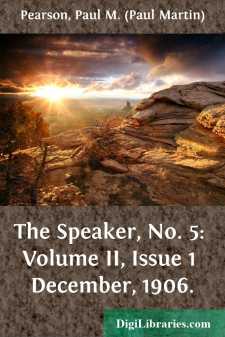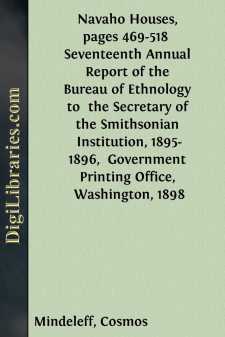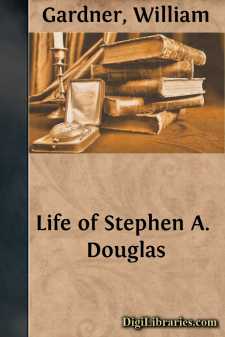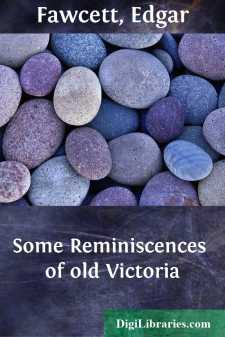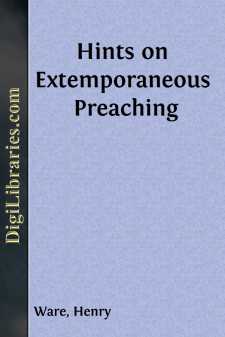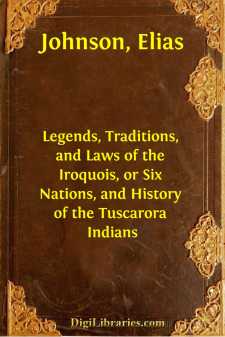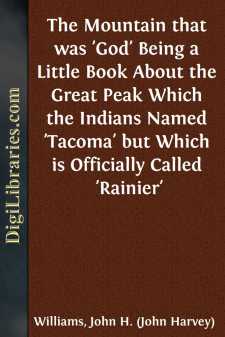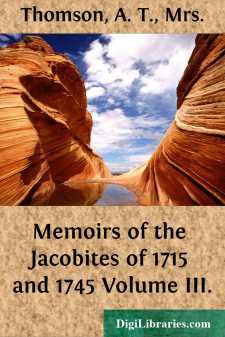Non-Classifiable
- Non-Classifiable 1768
Non-Classifiable Books
Sort by:
n teaching public speaking the final purpose must be to train the will. Without this faculty in control all else comes to nothing. Exercises may be given for articulation, but without a determined purpose to speak distinctly little good will result. The teacher may spend himself in an effort to inspire and enthuse the student, but this is futile unless the student comes to a resolution to attain those...
more...
by:
Cosmos Mindeleff
INTRODUCTION The account of the houses or hogáns of the Navaho Indians which is presented here will be of interest to the student of architecture, it is believed, because data concerning such primitive types of house structures are quite rare. It is also thought to be of interest to the archeologist and ethnologist as well as to the general reader, for it is well known that no one product of a...
more...
by:
William Gardner
Douglas was now at the zenith of his success, master of all his resources, the most admired, dreaded and powerful man in American public life. History must inexorably condemn much of his most brilliant and successful work, but the very emphasis of its condemnation is an involuntary tribute to the matchless efficiency of the man. At this period he was the most masterful and commanding personage of...
more...
by:
Edgar Fawcett
PREFACE To My Readers:— A preface is, as I understand it, an explanation, and maybe an apology, for what follows. If such is the case, I must explain several things contained in these "Reminiscences of Old Victoria" and its pioneers. Had I not been laid aside with the typhoid some eight years ago, it is likely I should not have thought of writing down these early memories, but many know what...
more...
A peculiar gap exists between the accepted theoretical basis of instruction in singing and the actual methods of vocal teachers. Judging by the number of scientific treatises on the voice, the academic observer would be led to believe that a coherent Science of Voice Culture has been evolved. Modern methods of instruction in singing are presumed to embody a system of exact and infallible rules for the...
more...
by:
Richard Garnett
CHAPTER I. John Milton was born on December 9, 1608, when Shakespeare had lately produced "Antony and Cleopatra," when Bacon was writing his "Wisdom of the Ancients" and Ralegh his "History of the World," when the English Bible was hastening into print; when, nevertheless, in the opinion of most foreigners and many natives, England was intellectually unpolished, and her...
more...
by:
Henry Ware
CHAPTER I. It is a little remarkable that, while some classes of christians do not tolerate the preaching of a written discourse, others have an equal prejudice against all sermons which have not been carefully precomposed. Among the latter are to be found those who favor an educated ministry, and whose preachers are valued for their cultivated minds and extensive knowledge. The former are, for the...
more...
by:
Elias Johnson
PREFACE. To animate a kinder feeling between the white people and the Indians, established by a truer knowledge of our civil and domestic life, and of our capabilities for future elevation, is the motive for which this work is founded. The present Tuscarora Indians, the once powerful and gifted nation, after their expulsion from the South, came North, and were initiated in the confederacy of the...
more...
FOREWORD. Every summer there is demand for illustrated literature describing the mountain variously called "Rainier" or "Tacoma." Hitherto, we have had only small collections of pictures, without text, and confined to the familiar south and southwest sides. The little book which I now offer aims to show the grandest and most accessible of our extinct volcanoes from all points of view....
more...
by:
A. T. Thomson
PREFACE. In completing this work, I have to repeat my acknowledgments to those friends and correspondents to whom I expressed my obligations in the Preface to the first volume; and I have the additional pleasure of recording similar obligations from other channels. I beg to testify my gratitude to Sir William Maxwell, Bart., of Montreith, for some information regarding the Nithsdale family; which, I...
more...


